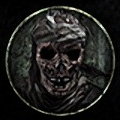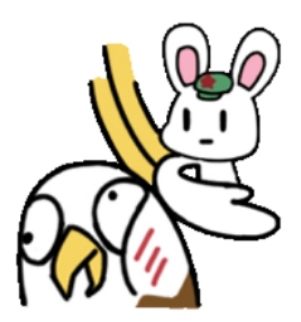Cold War II: Electric Boogaloo
“Us versus them” politics are asking for a complete washout on the international stage.
In the end, when the shit hits the fan, are you going to align yourself with the country that makes All the Things, or the one that can’t even pass a budget? COVID proved that it wasn’t just good-times, low-stakes gridlock: even existential crises weren’t enough to get America to cooperate and discipline herself.
If real life were a survival movie, we’d be getting to the scene where the secondary characters decide whether to follow Grandpa Sticky, who’s in the midst of full-blown dementia and was at best a vaguely racist philosophy professor when lucid, or the 22-year-old trained soldier with a fully stocked supply line. And we’d be throwing popcorn at the screen and deriding how terrible the writing is.
You will live to see WWIII.
It was honestly scary reading Lenin’s Imperialism, and then thinking of the current trends in geopolitics…
reading Lenin’s Imperialism
is that Imperialism, the Highest Stage of Capitalism? or Imperialism and the Split in Socialism? it’s about time I start reading these things
I’m talking about the former. It was written during WW1 and makes an analysis of the reasons why WW1 happened and why it’s an imperialist war that took place as a consequence of the capitalists within the different countries fighting for supremacy. I don’t expect the Chinese government to encourage militarism and conflict, but I do expect that from the US government, and I can’t say I feel like the US will give away its hegemony in the world stage without a “tantrum” first.
Passed 25 laws? That’s wild
As Parenti said (in Democracy for the Few), US congress and generally lawmaking is only glacially slow when it’s about any law which benefits the working class, but when it benefits its oligarchy, then it’s lightning fast.
They know who they work for.
Imagine what they could do if they gave a shit about us.
the maoist uprising against the landlords was the largest and most comprehensive proletarian revolution in history, and led to almost totally-equal redistribution of land among the peasantry
The world is so fucked and people are so convinced by the media to go along with it. They even blocked scientific co-operation with China! What the fuck?!
Death to America
They did? Thats insane because in my grad program almost every PI collabed with someone from china at some point.
Academia is dying anyway
From the article:
Approved legislation would also block scientific cooperation with China, while banning the sale of US farmland to nationals of China, Russia, Iran, and the DPRK (North Korea).
From the bill summary:
“Science and Technology Agreement Enhanced Congressional Notification Act of 2023
This bill requires the Department of State to notify Congress regarding science and technology agreements with China. Any existing agreement is revoked unless the State Department notifies Congress regarding the agreement no later than 60 days after enactment of this bill. The State Department must notify Congress 30 days prior to entering, renewing, or extending any science and technology agreement with China. A notification shall contain (1) the full text of the agreement, (2) a written justification for the agreement, (3) an assessment of the risks and potential effects of the agreement, and (4) a detailed justification for how the State Department intends to address human rights concerns arising from the agreement’s scientific and technology collaboration.„
They’re essentially making any government-related researchers jump through hoops to enable any form co-operation and collaboration.
This will significantly drop the amount of scientific collaboration between the two nations. Because even if you are not part of any state-wide project, this paranoia will still spill over into many institutions, especially because of the media circus surrounding current China -USA relations.
people are so convinced by the media to go along with it
Yeah no… they aren’t convinced as much as they want to rationalize it, when they know {unconsciously at least} who butters their bread…
Yeah I know the essay, but it’s just like, no matter how much I personally try to combat this idea that China or whomever is some evil hegemon, it never works.
No one person can undo the cultural racism of this nation. It’s going to take a movement and it’s going to take a lot of agitprop and patience before breaking through.
right on track for the 2025 war… i was starting to wonder if they were going to delay it or something because the amount of ‘rah-rah Taiwan’ has been rather low lately
They’ll stage a terror attack there and blame it on the CCP so they have their 9/11 moment.
totally… i just expect a lot more “Taiwan is America!” rah-rah first… just like the whole anti-semite bullshit on TV all of last summer before the single attack on an Israeli military base that somehow excuses them to spend a year bombing and slaughtering any Palestinian they see, and now Lebanese as well.
libs will see agencies get twice the annual budget of CNN to dedicate solely to fostering anti-Chinese sentiment and think they don’t have a propagandized view of the world
taiwanese semiconductors and their consequences have been a disaster for the generation that’s about to be sent to die over them
Best way to learn mandarin?
千里之行,始于足下
The hardest part is starting, because it’s hard to know where to begin (Grammar? Pronunciation? Characters?)
I would say just pick one and run with it, and you’ll naturally move into the other areas as you need.
So for example if you start by learning pinyin (the romanisation of the pronunciation), you’ll learn about how they represent tones, and then there may be a section about how the characters give ‘clues’ on how to pronounce them (the common example is 妈(吗)麻马骂 mā, má, ma3, mà) and before you know it you’ve learnt about radicals + components. Honestly it’s a good place to start.
The first few months are going to be oversimplified in any case so it’s largely a matter of getting the ball rolling, and you may have to ‘unlearn’ some things down the track* these may be deliberately glossed over so you don’t get discouraged.
Self study (free):
- Chinese grammar wiki to learn the structure
- italki for language partners online
- WeChat to add them if they’re actually cool and follow articles/content creators
- meetup or other event platforms to find IRL language practice events
- Anki to learn the first 250/500/1000 most basic characters by sight †
You should aim to learn with traditional materials until you get to HSK3 , then you’ll have more of a foundation for self-directed learning.
If you can afford it, getting a 1:1 online tutor, and trying out a few tutors until you find someone you gel with can be the difference between foundering around hopelessly and actually achieving something in your first year of study. I can’t share the platforms I used (one no longer exists, the other is too niche/local). Some may be students of Teaching Chinese as an Acquired Language and want to build up experience, so they’ll have good formal teaching techniques, others may just be looking for some money on the side and could offer things like ‘conversation class’ which could be more or less your speed depending on your budget/learning preferences.
If you want to practise hand writing, you can use manual spaced repetition:
- use a 田 block notebook to practise writing out the characters using a ‘guess and check’ method (write the correct character on one side with the pinykn then cover up either the character or the pinyin. Go down the list trying to write each character or meaning from memory and then when you get to the end of the column, compare and revise. Write in missing characters/strokes/components/definition with a red pen, circle the mistakes and then continue. If you get a character right three times in a row, you can put it aside and add a new one in its place. After one week, revise all the ones you successfully got three times. After one month do the same for all that month. I used this method before my HSK exam
I did some free online tutoring for beginner students, and I’ll have a look for them and if I find them and can anonymise it, I’ll try to share here if you’re interested.
`* (e.g. the b sound in pinyin isn’t actually the same as an English b, it’s an unaspirated p, the tongue placement for some consonants is different too, but honestly it’s no biggie, e.g. there are more than four tones because there’s neutral tone and sandhi where tones merge, e.g. not all characters are 型声 component sound characters)
† I say characters not words, because the aim here isn’t to learn 250/500/1000 words but the characters that make up words. Your vocabulary will be much larger because many Chinese words are made up of characters e.g. 手 shou hand + 机 ji machine = shouji cellphone/mobile phone. 飞 fei fly + 机 ji machine = aeroplane. If your approach were to treat shouji and feiji as discrete words, you’d miss out on recognising ji as the key for learning ‘machine’. Your deck should have words and their break down into characters and focus on combinations of the most commonly used 250/500/1000 to facilitate those ‘ah ha’ moments. It’s not quite exponential but as you learn more characters there’s gunna be more instances where you can guess the meaning of new words just by looking at what their components are.
Don’t try to use anki to learn phrases, it’s disingenuous because you learn to parrot sentences in their entirety without really digesting them i.e. imo it’s better to learn 你 ni you + 去 qu go + 哪里 nali where rather than 你去哪里 ‘where are you going’?
Definitely saving this comment
I’m sorry it couldn’t be more like a study guide, it’s more just an assembly of thoughts I threw together on the bus ride this morning. I think my main takeaway for self learning is just start somewhere, because if you spend too long trying to find the perfect one-stop-shop starting point 1) you’ll never find it and 2) you’re wasting useful time. If you spend that time following a thread for a month or so, even if you need to slightly course correct down the line, you’ll be miles ahead of the people who tried to optimise their first step.
Buckle down and study
Abortion Please!
















